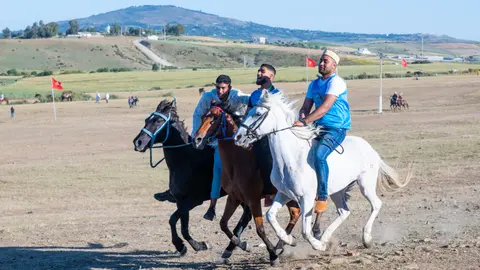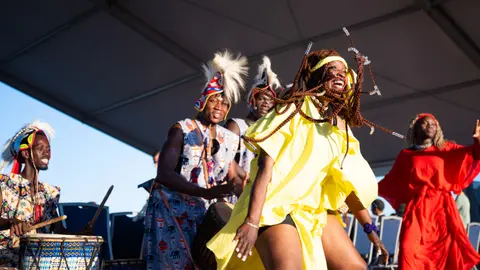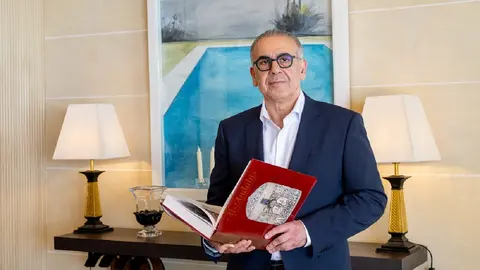Two winners and other news from the 13th edition of the Mata International Festival
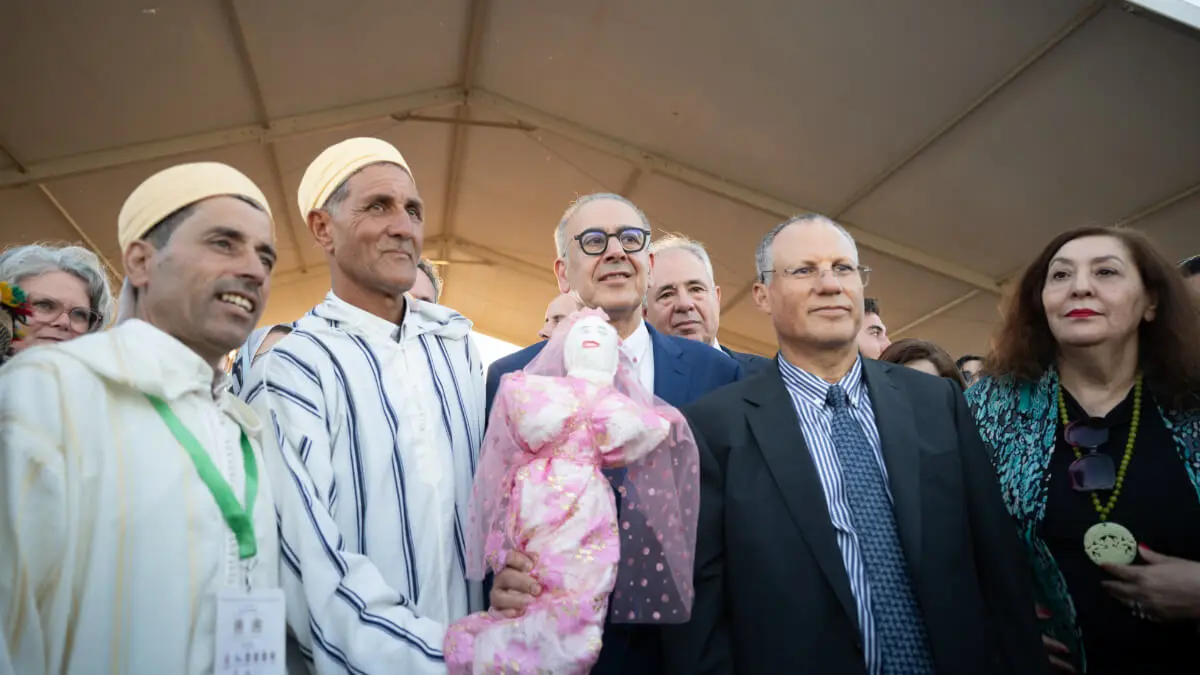
- Mata: a popular event and competitors with strong ambition
- Mata: an opening to the world and a ‘zoom’ on Africa
- Series of conferences to celebrate the quarter-century reign of Mohammed VI
- A fair of local and artisanal products for visitors
- Moroccans living abroad as guests of honour
The 13th edition of the Mata International Equestrian Festival came to a close in Zniyed, Larbaa de Ayacha, in the province of Larache, with the presentation of two prizes to two winners, which was a rare occurrence this year. This annual event combines the spirituality of Sufism with the popularity of equestrian activities, culture, tradition and internationalism.
In his closing speech, Nabil Baraka, president of the Mata International Festival, emphasised that ‘this annual event renewed its commitment to defending the culture of peace and coexistence’, highlighting ‘the spiritual dimension of the festival as a Sufi centre in the Muslim world and a model of tolerance, love, unity and coherence’.
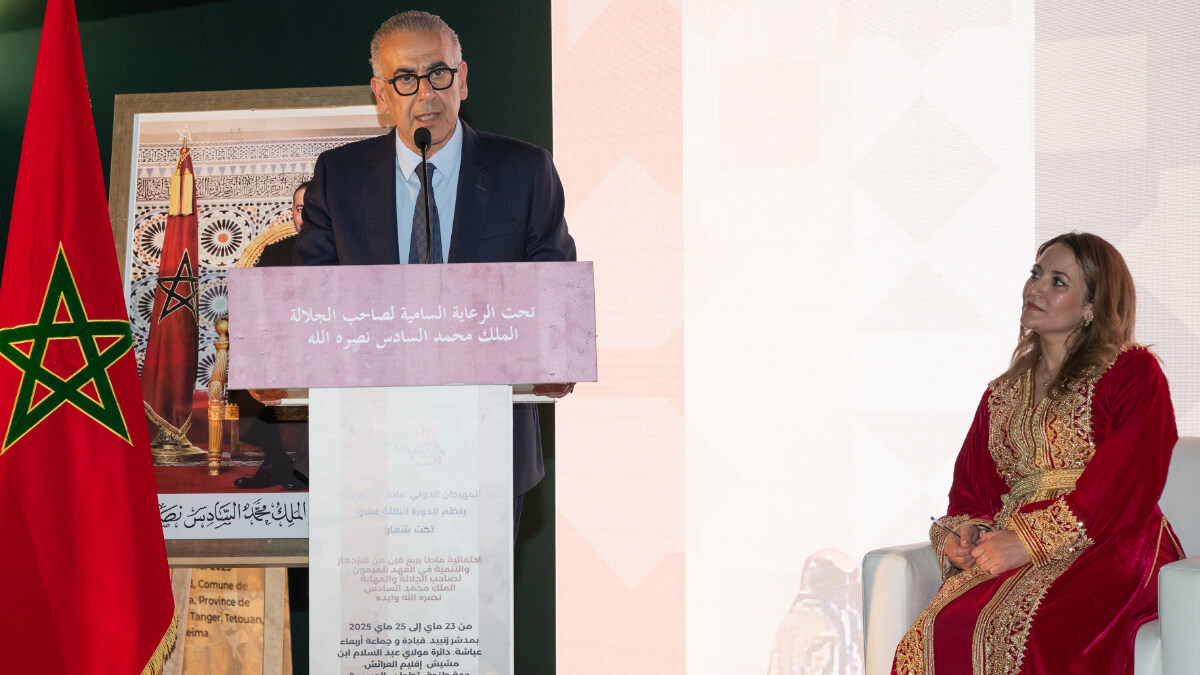
Mata: a popular event and competitors with strong ambition
‘The Mata Festival embodies the living transmission of an ancestral heritage, in a dynamic that links past and present, tradition and modernity,’ said the festival director, pointing out that, through the symbolism of the equestrian game of ‘Mata’, a collective memory is celebrated, in perfect harmony with the values of peace, spirituality, Sufism and universality.
Mata is also a competition between traditional horsemen to win the Mata doll. The latest edition, organised under the High Patronage of King Mohammed VI, was marked by its closing ceremony with two winners and the presentation of two Mata dolls.
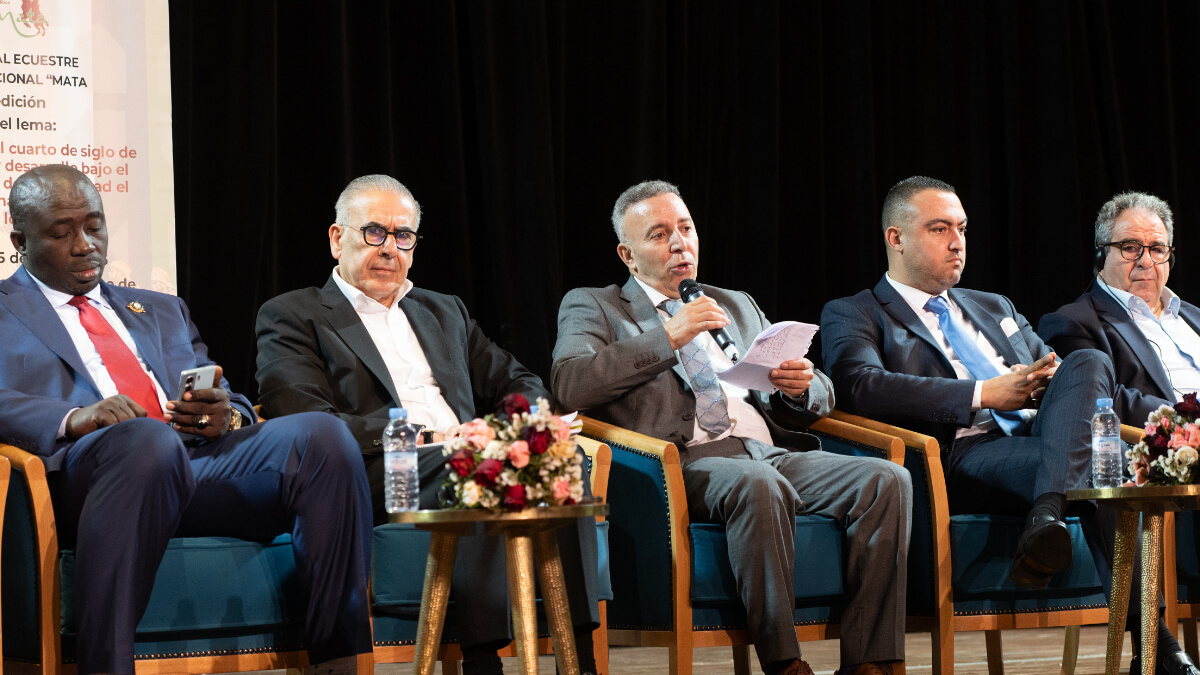
Mata: an opening to the world and a ‘zoom’ on Africa
The Equestrian Festival, considered an intangible Moroccan heritage by ISESCO, reflected in its 2025 edition an opening to the world through the participation of delegations from Europe, North America, Latin America, Asia and the Arab world, as well as various international institutions.
This year's event zoomed in on Africa, bringing together several senior officials and diplomats from sister African countries, in line with the royal guidelines that emphasise the African dimension of the Alawite kingdom. This was part of the Atlantic Facade Initiative, which reflects not only an economic strategy but also a symbol of solidarity with the Sahel countries that will have access to the Atlantic.
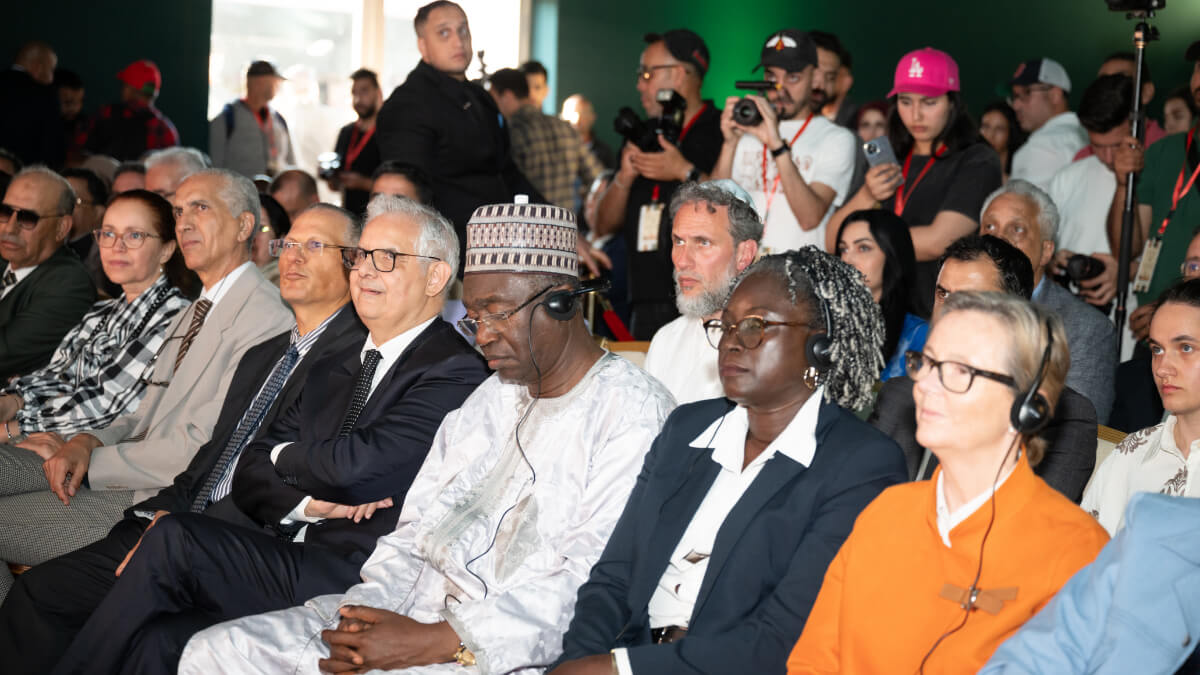
The African presence at the Mata festival was not only reflected in the delegations that participated in the celebration of the 25th anniversary of the reign of Mohammed VI, but also through the participation of African representatives in the local products fair. African musical groups also participated in the festival's entertainment programme.
The event was attended by several African ambassadors, including those from the Republic of Sudan, Rwanda and Ghana, among others, alongside representatives of the European Union, the ambassador of the Kingdom of Spain in Morocco, and the chargé d'affaires of the Embassy of the United States of America.
Among the most prominent speakers reflecting coexistence and peace, the participation of a Palestinian delegation and an Israeli delegation in a joint message for peace in a world going through difficult and very intense times stood out.
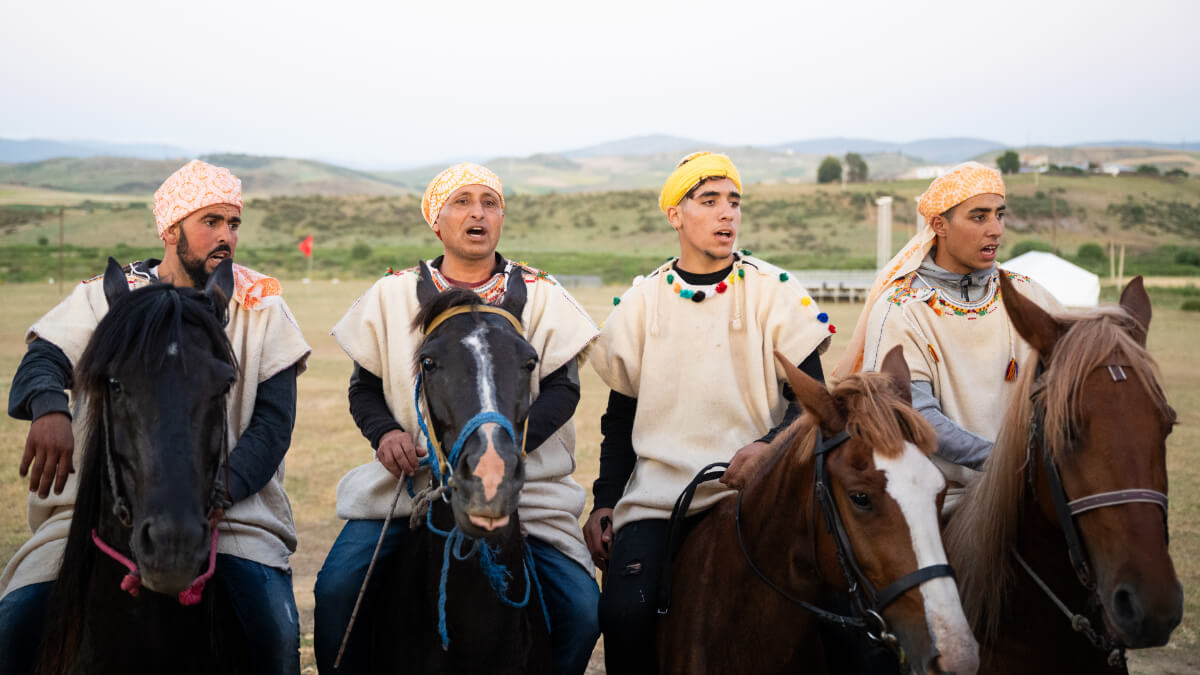
Series of conferences to celebrate the quarter-century reign of Mohammed VI
The Mata International Festival welcomed renowned personalities and institutions from diplomatic, cultural, political, economic and media circles, known internationally for their role in spreading the values of peace, love and coexistence, as guests or participants in the series of conferences celebrating the achievements of Alawite King Mohammed VI.
The Family Code was one of the most important topics discussed by the panels, with the participation of experts in the field, shedding light on the major reforms that the Mudawana has undergone since 2004 and the changes that are being made to ensure the well-being and protection of the Moroccan family as the nucleus of a healthy and balanced society.
With a renovated cultural space, the festival also organised conferences and forums on the universal spiritual importance of the Sufi pole Moulay Abdessalam Ibn Mashish, as well as other intellectual, political, economic and cultural topics.
Another conference focused on the role of the heritage of ‘Mata’ as a strategic lever for sustainable investment, paying special tribute to authentic Moroccan music in all its forms and expressions, with the aim of promoting the national and Maghreb artistic heritage.
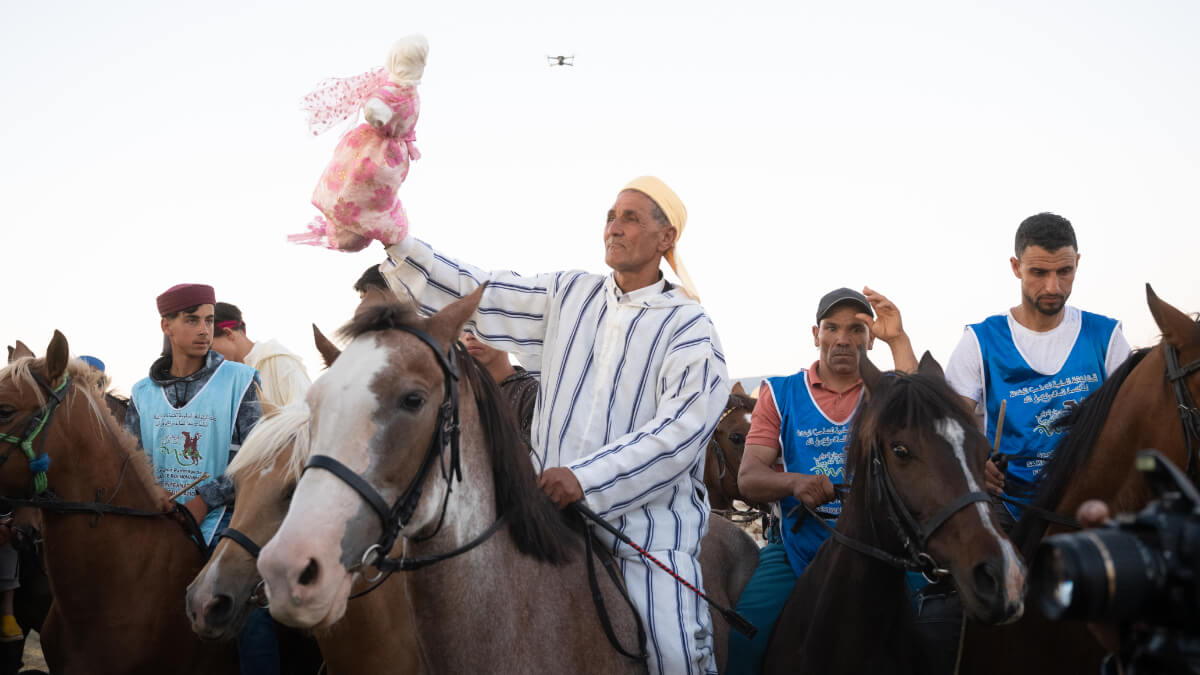
A fair of local and artisanal products for visitors
In addition to the series of conferences and shows, the Mata Festival inaugurated its local products and crafts fair for Moroccan and foreign visitors. This is a fair for traditional products made by Moroccan and international artisans.
It is a space that brought together cooperatives from all regions of Morocco, from the north of the country to the southern territories, as well as exhibitors from Mauritania, Ivory Coast, Senegal and Burkina Faso, among others.
The exhibition featured more than 80 participants with a variety of products, including jewellery, cosmetics and organic food, among others. Among all the products, African products enjoyed a significant presence.
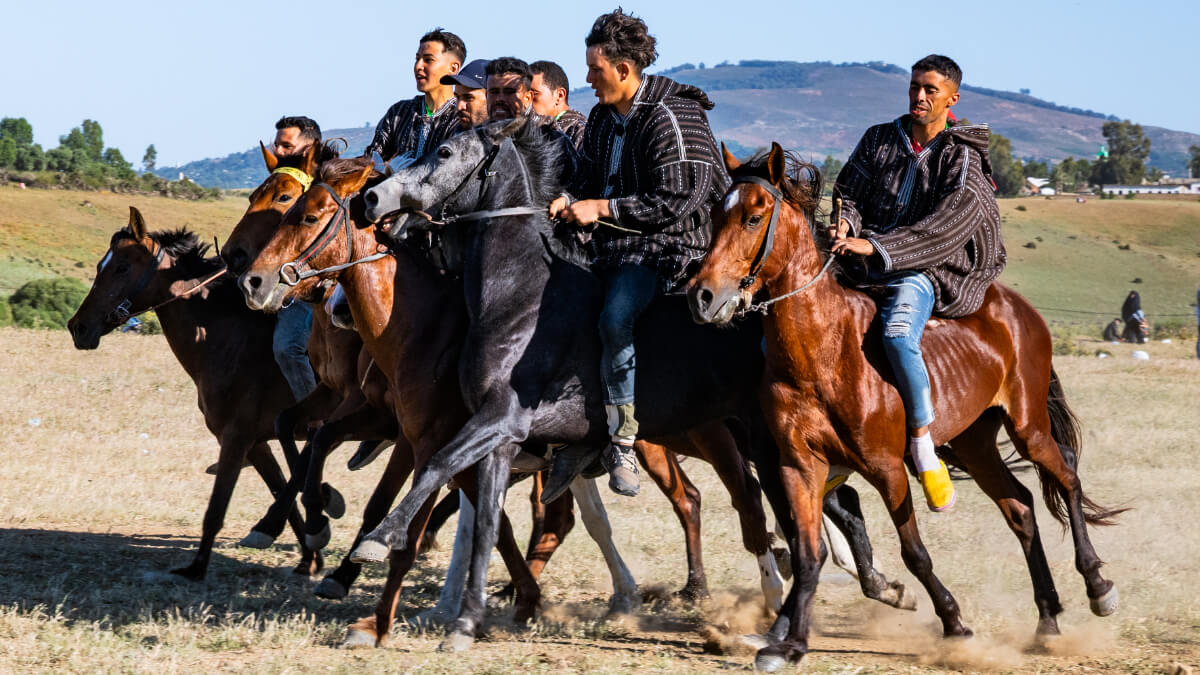
Moroccans living abroad as guests of honour
As part of Mohammed VI's vision of paying attention to Moroccan citizens abroad, Moroccans living abroad were the guests of honour at the 13th edition of the Mata International Festival.
According to the organisers, the event also provided an opportunity for Moroccans living abroad, proud of their history, to rediscover their diverse Morocco, united in its essence. It is an opportunity to explore the region's equestrian and Sufi traditions.
‘The equestrian tradition, with all its rituals, is what unites us today under the baraka (divine blessing and grace) of the saint Abdeslam Ibn Mashich who, since the 12th century, spread messages of peace,’ emphasised Nabil Baraka, recalling that ‘at this time, the world needs unity and peace more than ever to be able to face the difficult situation facing humanity’.
Nabila Baraka, president of the Alamia Laaroussia Social and Cultural Action Association, recalled the decisive role played by the Naquib of the Chorfas Alamiyines Abdelhadi Baraka in preserving this authentic intangible heritage of northern Morocco.


